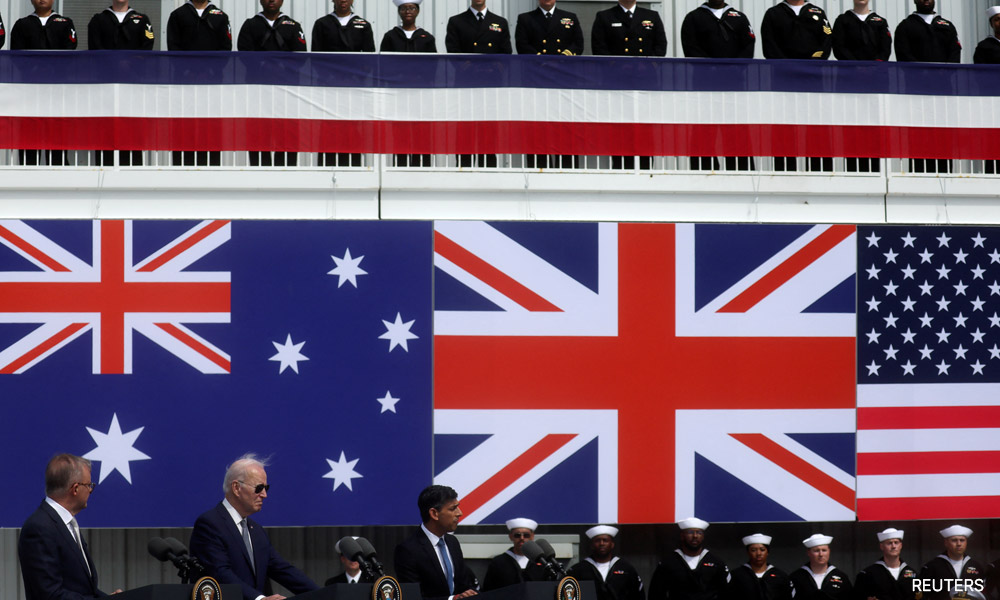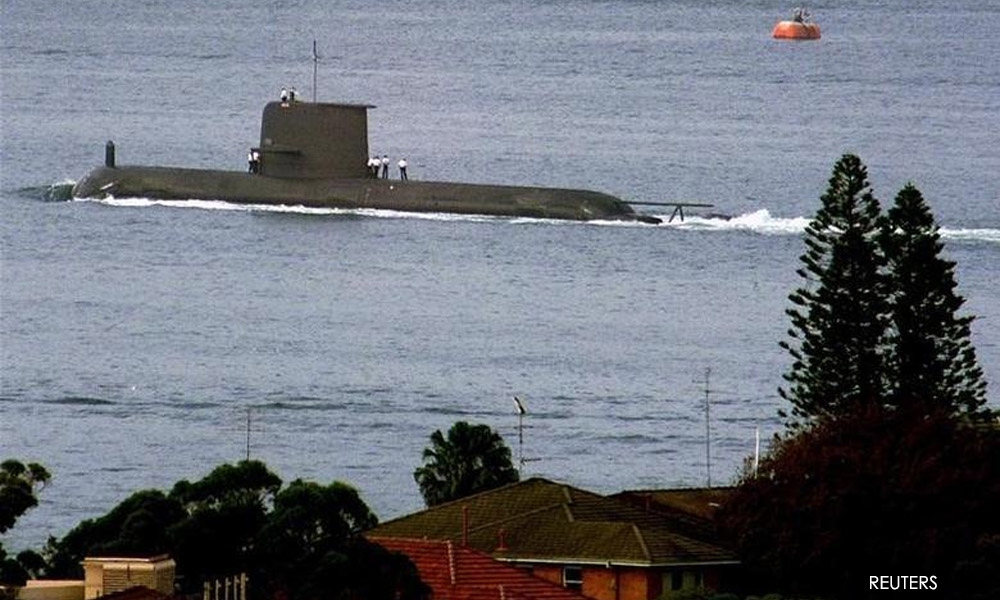PARLIAMENT | Australia’s newly purchased submarines have nuclear-powered engines and are not equipped with nuclear weapons, said Defence Minister Mohamad Hasan.
Mohamad said the matter was informed to him personally by the Commander of the Australian Armed Forces who is also the Special Envoy of the Prime Minister of Australia on March 9.
This, he said, was also in line with Australia’s commitment to the Treaty on the Non-Proliferation of Nuclear Weapons (NPT).
He said during the Minister's Question Time in the Dewan Rakyat today in response to a question from Lim Guan Eng (Pakatan Harapan-Bagan) who wanted to know Malaysia's stance following the Aukus defence pact - between Australia, the United Kingdom, and the United States - in which Australia will buy eight nuclear-powered submarines worth AU$368 billion (RM1.09 trillion), and its impact on the security of Asean countries based on the Zone of Peace, Freedom and Neutrality (Zopfan).
Mohamad said Malaysia’s stand on Aukus remained unchanged.
“Malaysia urges all parties, whether inside or outside the Aukus alliance, to respect each other and fully comply with existing national and international legal instruments, especially in relation to the operation of nuclear-powered submarines in the country’s waters,” he said.

He said this included the United Nations Convention on the Law of the Sea 1982 (UNCLOS), the Southeast Asian Nuclear Weapons-Free Zone Agreement (SEANWFZ), and the Asean Declaration on Zopfan.
On March 14, he said, Wisma Putra also issued a statement regarding Malaysia’s stance and called on all parties not to engage in any provocative activities that could disturb peace and security in the region.
Mohamad said that as a member of Asean, Malaysia holds the principle of maintaining Asean as a Zopfan, including in issues related to nuclear disarmament, nuclear proliferation prevention, and peaceful use of nuclear technology.
To Lim’s question whether the submarines would be allowed to operate within the waters of Asean countries, Mohamad said that based on UNCLOS 1982, a ship or aircraft is free to navigate or fly in or over the Exclusive Economic Zone (EEZ) of any country.
However, it is subject to the rules and laws of the coastal country (as long as it does not conflict with UNCLOS 1982), he said.
“UNCLOS 1982 also states that any submarine that passes through the territorial waters of another country must always be on the surface of the water and this rule also applies in Malaysia and other coastal countries in Southeast Asia.
“Indeed, if there is a foreign submarine, whether conventionally powered or nuclear-powered, that wants to sail below the surface of the water in Malaysian waters, the navy of the foreign country needs to submit an application to the Royal Malaysian Navy through a diplomatic note to obtain special approval.
“The rule also applies if any submarine or warship wants to enter any port in Malaysia,” he added.

Meanwhile, Mohamad said the Asean Defence Ministers Meeting-Plus, scheduled to be held in July in Indonesia is also expected to discuss the Aukus issue.
He said the meeting, which would focus on defence relations and Asean cooperation with countries outside the region, will also see the participation of six other countries including Australia and the United States.
To a supplementary question from Lim, Takiyuddin Hassan (Perikatan Nasional-Kota Bharu) on measures to ensure national security and defence following allegations that the purchase of the submarines by Australia was due to the presence of the Chinese military in the South China Sea, Mohamad said Malaysia is also improving its defence assets.
- Bernama

No comments:
Post a Comment
Note: Only a member of this blog may post a comment.